Costa Mesa voters lean toward council incumbents, but not Measure K, which they all backed
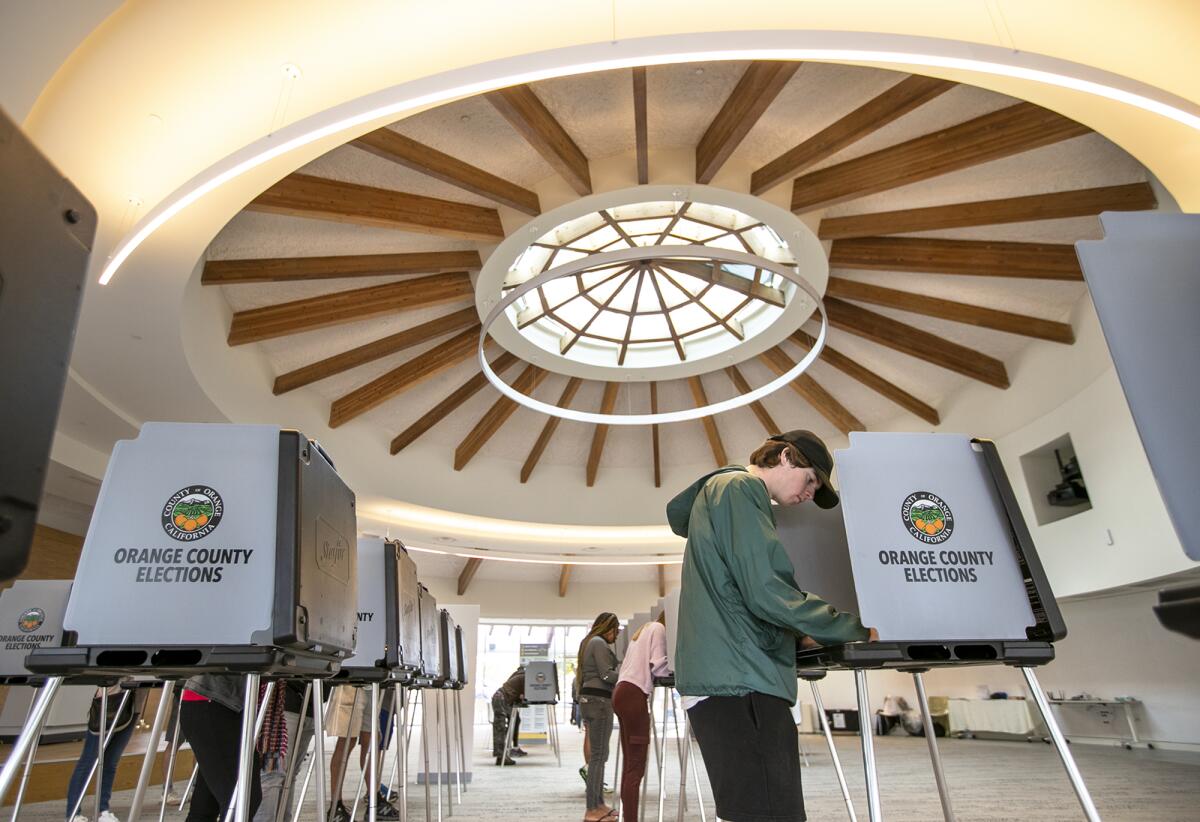
As county vote officials continue counting ballots, preliminary results in the race for three contested seats on the Costa Mesa City Council favored incumbents, although the fate of the initiative they all supported — Measure K — is still uncertain.
In the at-large race for mayor, incumbent John Stephens was ahead in the contest as of Wednesday at 5 p.m., coming in at 54.1% with 10,135 votes. His contender, former state senator and Orange County Supervisor John Moorlach, trailed with 8,585 votes, earning 45.9% voter approval.
Stephens said he spent election night in the company of fellow Councilman Jeff Harlan and Katrina Foley, a former Costa Mesa mayor who is campaigning for reelection on the Orange County Board of Supervisors.
“This is my fourth campaign, and when you’re done it’s just great to not have to think about it, because on some level it occupies your mind always,” Stephens said Wednesday. “But I’m doing great.”
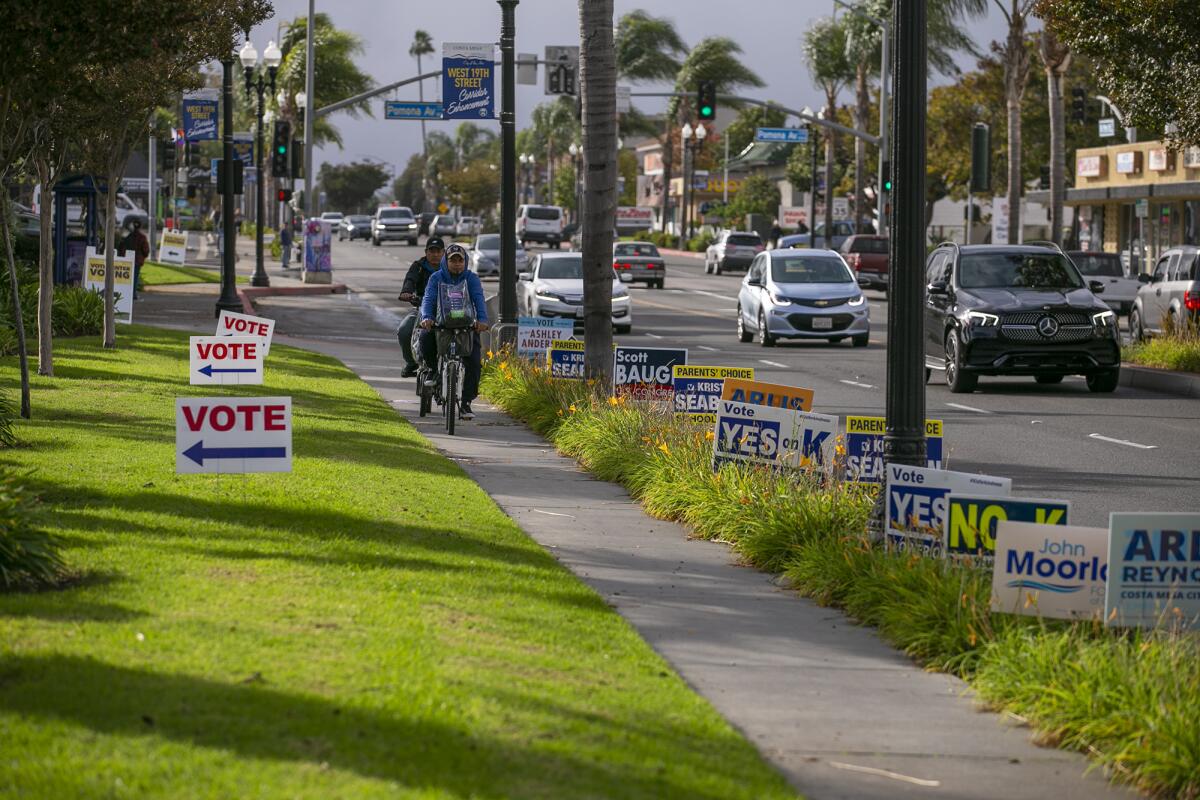
Moorlach — who spent Tuesday evening at Catalina Fish Kitchen in Costa Mesa with fellow GOP candidates running for city council, school board and utility district seats — said he was startled to see his vote count rise significantly from the initial tally of 38.5% as the night drew to a close.
He said Wednesday afternoon with little more than 18,500 votes counted the night before, there was still a good chance he might manage a win as the Orange County Registrar of Voters continues to release daily updates this week.
“There’s got to be a bigger turnout than that,” Moorlach said. “If the registrar tonight records more ballots, at the pace I’m going, I could pass John Stephens.”
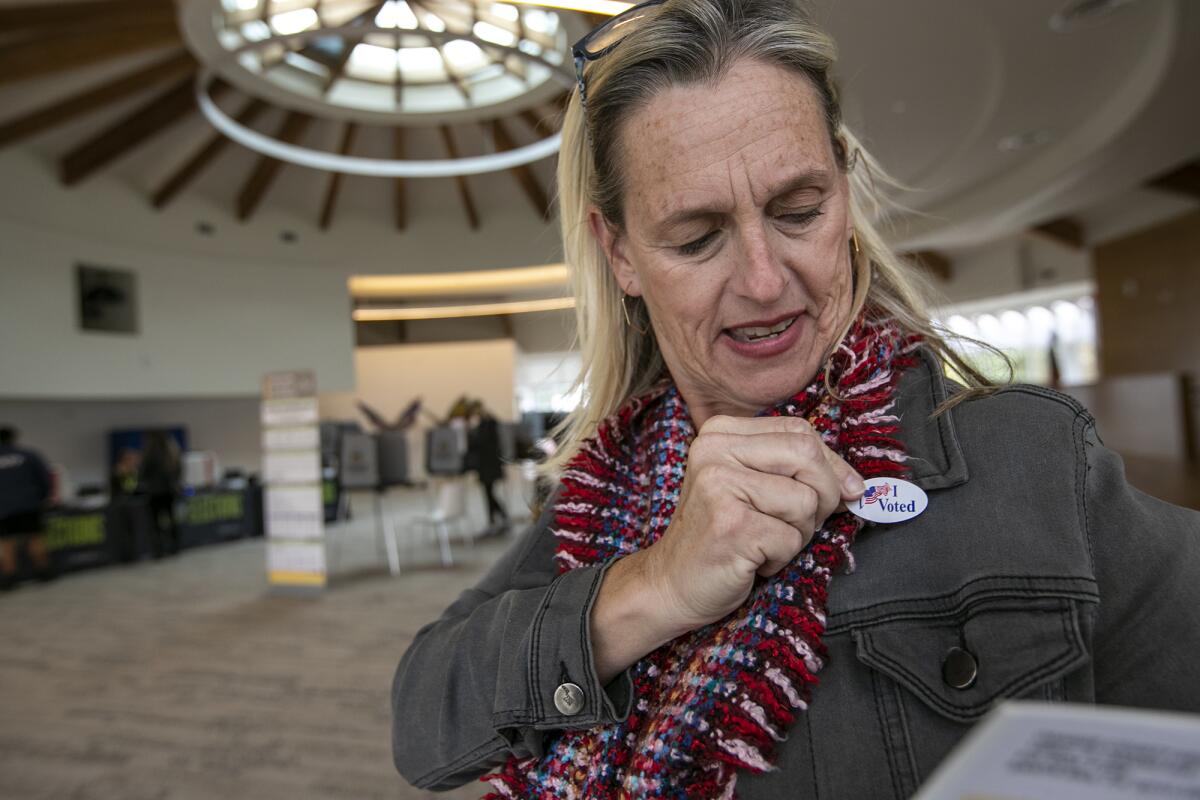
So far, 18,720 mayoral votes have been counted, reflecting 30% of the city’s 61,863 registered voters. Many more votes will be tabulated in the days ahead, as the county reported Wednesday 22,569 Costa Mesa voters had returned ballots by mail.
In Council District 3, Democratic incumbent Andrea Marr faced two competitors — conservative John Thomas “JT” Patton and Jorge Miron, a self-described independent Democrat.
Wednesday’s count showed Marr slightly ahead with 45.3% of the vote, compared to Patton’s 41.7%. Miron was in third place with 13% approval.
Although Councilman Manuel Chavez ran unopposed in District 4, several local voters still marked their ballots in his favor — as of 5 p.m. Wednesday, 1,062 individuals had cast ballots for Chavez.
District Councilwoman Arlis Reynolds, a Democrat, squared off against Republican challenger Rob Dickson and was leading with 62% approval Wednesday, compared to Dickson’s 38% share of ballots cast.
Measure K campaign a ‘cliffhanger’
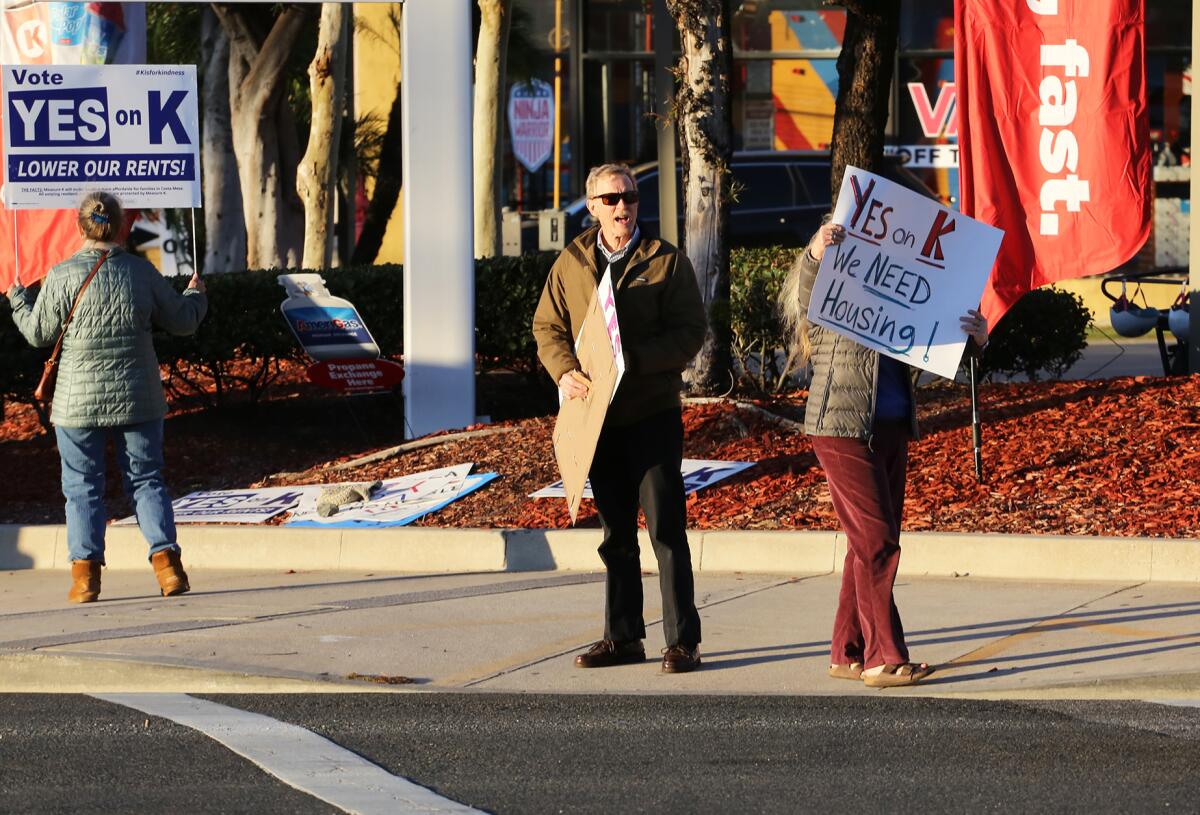
Costa Mesa voters were also asked to decide the fate of Measure K, an initiative that would ease development restrictions in certain commercial and light industrial corridors in town by lifting a voter requirement codified by 2016 ballot Measure Y.
Although initial figures released Tuesday at 8 p.m. showed the proposal at a slight lead, by Wednesday afternoon, figures indicated 9,718 voters, 50.02% opposed Measure K, compared to 9,711, or 49.98% who supported it — a margin of just seven votes.
Supporters, including all four incumbent candidates, said the measure would ultimately spur new housing by allowing city officials to make needed zoning amendments in the selected areas without having to put the changes before voters.
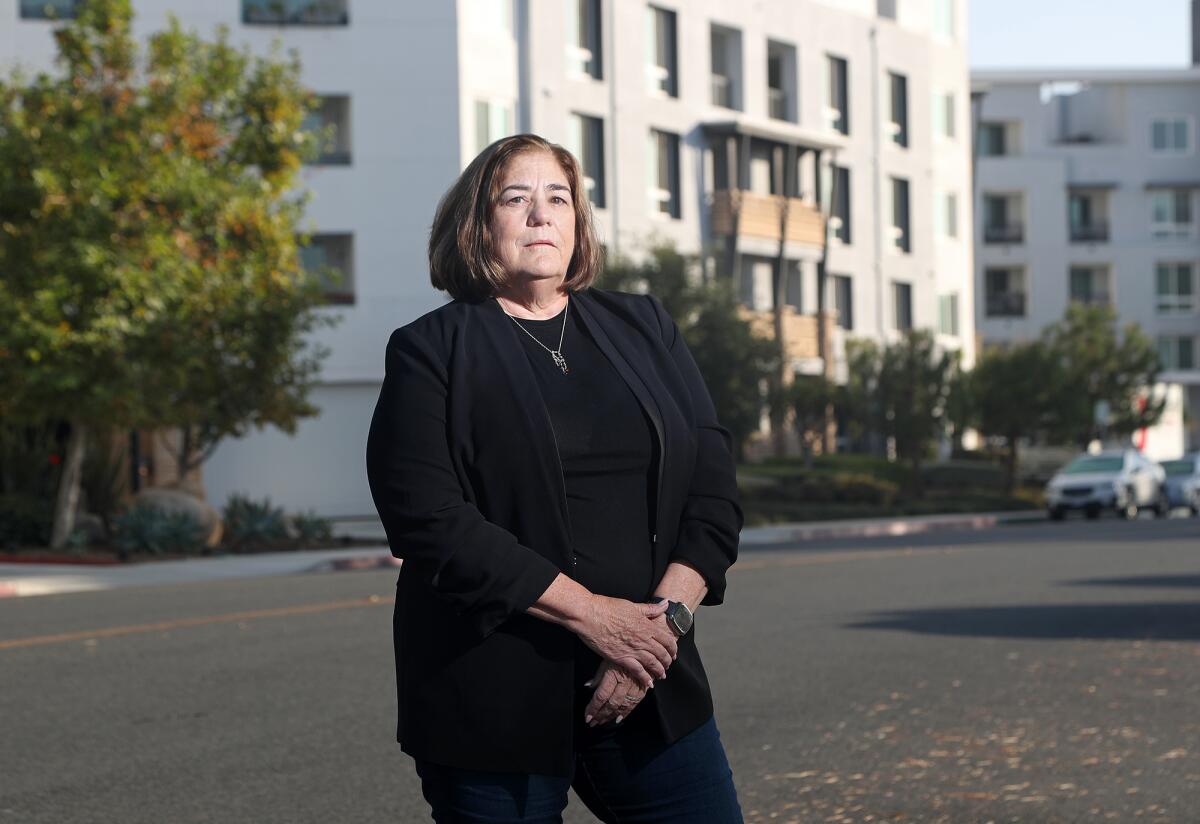
Opponents, many of them citizens who worked to pass Measure Y in 2016, feared the initiative might lead to overdevelopment. They said an inclusionary housing ordinance requiring developers to build a certain percentage of below-market-rate units would be a more effective way to create affordable housing.
Stephens said while he answered constituents’ questions about the initiative, he focused his campaign efforts on winning the mayor’s race.
“I saw it as a separate issue for sure,” he said Wednesday. “For some people, [Measure K] was really hard to understand, and if you get into the technical aspects of the measure, you lose people. What worked better … was having a value-driven discussion.”
Moorlach, who voted against Measure Y in 2016 but also opposed Measure K, said if voters elected him as mayor and approved Measure K, he’d be sure to seek resident input in any decisions made from that point on.
“It would be my responsibility to make sure my constituents understood why I was voting for development projects,” he said.
Kathy Esfahani, a retired attorney who sits on the Yes on Measure K Steering Committee and Costa Mesa Affordable Housing Coalition, said although Wednesday’s count was a “cliffhanger,” she was heartened to see the opposition to the measure was not as strong as detractors had portrayed.
“It’s clear there is no longer a consensus in favor of the no-growth position that was behind Measure Y in 2016,” she said. “The people are willing to empower their city council to make smart decisions on growth and create housing where it makes sense.”
All the latest on Orange County from Orange County.
Get our free TimesOC newsletter.
You may occasionally receive promotional content from the Daily Pilot.




